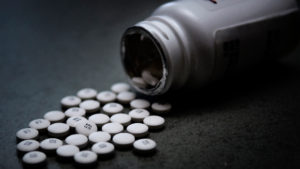Medication Assisted Treatment (MAT)
In 2014, an estimated 1.9 million people had an opioid use disorder related to prescription pain relievers. Everyone is a candidate for medicated assisted treatment.
The FDA has approved several medications that have proven highly successful in an opioid treatment program when combined with behavioral therapy called Medication-Assisted Treatment (MAT).
MAT is primarily used for the treatment of dependency to opioids such as prescription pain relievers that contain opiates. The prescribed medications, Suboxone or Buprenorphine operate to normalize brain chemistry, block the euphoric effects of opioids, relieve physiological cravings, and normalize body functions without the negative effects of the abused drug. Other substance use disorders and stimulant use disorders are effectively treated by our MAP program as well.
Medications used in MAT are approved by the Food and Drug Administration (FDA), and MAT programs are clinically driven and tailored to meet each patient’s needs. Medicated assisted treatment can help patients who are unsure if they are dependent on opioids for daily function due to chronic pain or ongoing surgeries or procedures. MAT is a great solution for helping those who want to reduce and eliminate daily dependency on pain medications, substance use disorders and stimulant use disorders.
“If addicts take it properly, they have no cravings, they have no withdrawal, and they feel, ‘normal’.“
DR. ADAM BISAGA – Professor of psychiatry at CUMC and researcher at New York State Psychiatric Institute
MAT vs Traditional treatment
Most traditional treatment of opioid use disorder are programs where the person is removed from the current environment and fight the symptoms of withdraw and ongoing cravings and pain until the opioids are out of the system. Then, through pure willpower the person tries to resist the bodies ongoing cravings for days, months, years or a lifetime.
Although traditional treatment can be effective in a small percentage of those suffering from opioid use disorder, there are many problems with this traditional treatment. Once the person has returned to their daily environment the outside pressures and influences are still present. It only takes one moment of weakness to relapse and the fall can be worst then before the abstinence. Meanwhile, precious time and money has been spent with only ongoing frustration for family, friends and loved ones being the result.
Opioids are strong medications that have a chemical grip on the mind and body of those suffering. Medicated assisted treatment helps break that chemical dependency by blocking and reducing cravings while the psychological and behavioral effects are being addressed and treated. Traditional treatment doesn’t address the physical body effects of opioid use disorder relying on a beaten and tired mind to be the instrument to overcome a strong physical and chemical craving.
The long term results are generally better with MAT than attempting to stop opoid use all together with a lower risk of of overdose with medication use. MAT is effective maintenance therapy for those who are dependent on opioids and has the same efficacy as methadone, which are both more effective than traditional abstinence-based treatment.
Only 40K physicians are licensed to treat opioid use disorder with MAT versus the over 900K physicians who can prescribe opioids every day. The demand for a viable solution is high and MAT is the solution.
There are over 900K physicians who prescribe opioids every day and only 40K physicians licensed to effectively combat this epidemic with medically assisted treatment (MAT)
WALL STREET JOURNAL
Common misunderstanding of MAT
A common misunderstanding of MAT is that it is swopping one medication for another. These medications act differently as they help relieve withdrawal symptoms along with the psychological cravings that are caused by a chemical imbalance in the body. PAR physicians minister the appropriate levels of medications to overcome the use of an abused opioid while slowly lowering the dosage overtime as the patient becomes physically and emotionally strong enough to overcome opioid dependency. This treatment is done in one of our outpatient PAR clinics where licensed physicians can closely monitor weekly and monthly progress.
The three medications most commonly ministered are Methadone, buprenorphine, and naltrexone.
Methadone – this is a clinic based opioid agonist that doesn’t block other narcotics while preventing withdrawal while taking. It tricks the brain to think its still getting the abused drug but with no feeling of getting high and no normal withdraws occurring. https://www.samhsa.gov/medication-assisted-treatment/treatment/methadone
Naltrexone – office-based non-addictive opioid antagonist that blocks the effects of other narcotics. Blocks the euphoric and sedative effects of an abused drug is the person relapse to not cause harm. https://www.samhsa.gov/medication-assisted-treatment/treatment/naltrexone
Buprenorphine (Brand name Suboxone) – office-based opioid agonist/antagonist that blocks other narcotics while reducing withdrawal risk. Helps with suppressing and reducing cravings of the abused opioid. https://www.samhsa.gov/medication-assisted-treatment/treatment/buprenorphine
Research shows that through proper dosage that MAT has no adverse effects on a person’s mental, intelligence, capability, physical functioning, or employability. All PAR physicals are certified to dispense MAT medications. People can safely take these medications for treatment for months, years or even a lifetime. Dr. Adam Bisaga, professor of psychiatry at CUMC and researcher at New York Stake Psychiatric Institute who has many years working with opioid addicts testified to congress that, “if addicts take it properly, they have no cravings, they have no withdrawal, and they feel ‘normal,” said Bisaga. “And that’s why the medication is so effective.”
Dr. Adam Bisaga, professor of psychiatry at CUMC and researcher at New York State Psychiatric Institute. Bisaga works closely with heroin addicts and has testified before Congress on combating the opioid-abuse epidemic.
TRY A PROVEN APPROACH TO RECOVERY
Call to find out more about Medication Assisted Treatment and how it can help
(480) 737-1955
ONLINE SUBOXONE DOCTORS
Meet our addiction recovery therapists who are specialized and trained in opioid dependence

